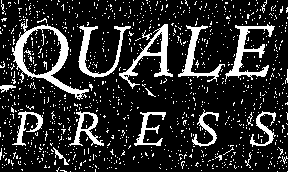|
From "The Centaur"
I was born in these mountain caves. The first moments of my life trickled into the shadows of my secluded abode without disturbing the silence, just like this valley's river whose first drops fall from some weeping rock in a remote cavern. When our mothers near giving birth, they wander into those caverns, and in their furthest, most untamed recesses, in the dankest shadows, they drop, without issuing even a moan, fruit as taciturn as themselves. Their potent milk enables us to overcome whatever struggles such infants might have to endure without succumbing. Yet we leave our caves later than you leave your cradles. It's common knowledge among us that we need to withdraw from the world and safeguard our first stage of existence as days when we commune solely with the gods. My growth charted its own course almost entirely in the shadows where I had been born. The location of my abode was struck so deep into the mountain that I would never have known an exit existed if the winds, after turning and twisting so many times from that distant opening, had not sometimes cast me a sudden draught of freshness or storminess. Sometimes, too, my mother returned, swathed in scents from the valleys or drenched and dripping from the waters into which she often dove. However, when she returned, she never told me about those little valleys or their streams. Rather, I inhaled what emanated from her — which upset me — and I paced this way and that in the darkness. What, I asked myself, is this realm outside that has so much power over my mother? What reigns there that is so compelling that it so frequently beckons her? What's so unsettling out there that she comes home each time in such a different mood? Sometimes my mother would come back animated with a profound joy. Sometimes she'd be so sad, shuffling her feet or limping along. Even from a distance I could detect her good spirits in how she carried herself and directed her gaze. I felt her moods with every fiber of my being. But her anguish seized me most strongly and ensnared me much more deeply into convoluted conjectures. In those moments, I worried about my own fortitude, recognizing that I possessed a force that could not be contained. It took hold of me, making me thrash my arms about or redouble my strides in the broad shadows of the cave. I started to realize — through the blows that I struck in the void and the frenzied steps I made there — what my arms must embrace and where my feet must bring me. . . Ever since, I have wrapped my arms around the torsos of centaurs, the bodies of heroes and the trunks of oaks. My hands have touched rocks, waters, innumerable plants and cupped the most subtle impressions of the air. I lift them up during impenetrable and serene nights to intercept the breezes and then glean from them signs to guide my way. Look, Melampus, how worn my hooves are! And yet, as stiff as I am in the far reaches of old age, there are still days when, in broad daylight on mountain summits, waving my arms and summoning all the speed left in me, I bolt as I did in my youth — and for the same reasons...
.
|
